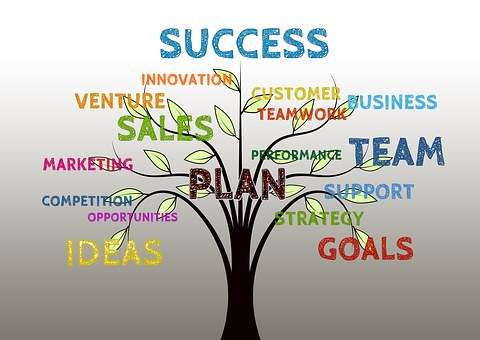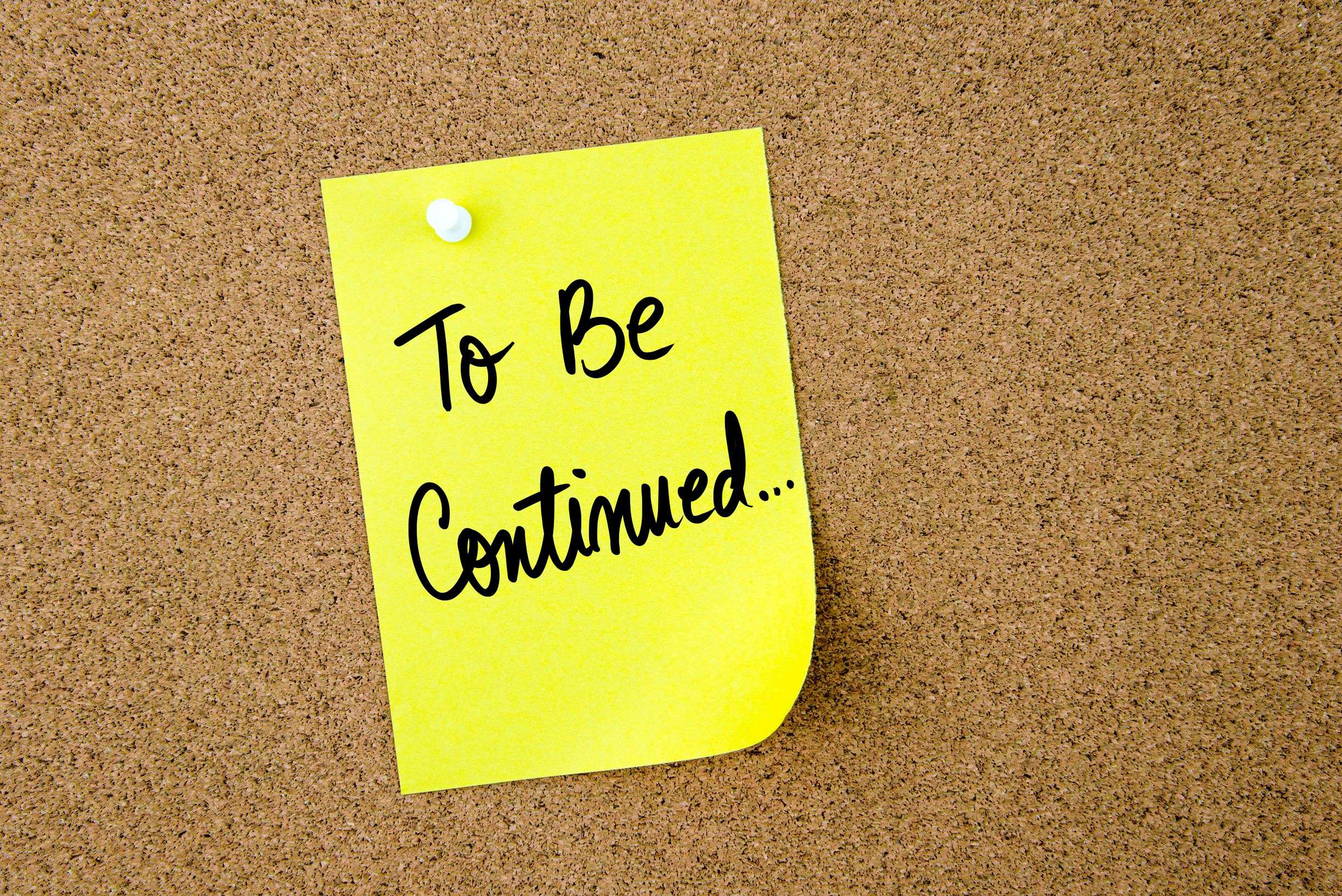Preparing for the website upgrade.
One of the biggest challenges of updating a website is taking time for the preparation and strategy to accomplish your goals. Without the prep work the new website may produce the same or worse results than your current website.
Be prepared to answer some simple questions about your business as well as some thought provoking questions. If you agency or webmaster isn't asking these questions you may need to look into a different vendor for the work.
The questions about your business for website update.
The first questions should be about the business name, address, and phone.
There are some nuances to the answers to these questions.
The name should be the business name as your doing business on the website. The actual business may be registered under a different name with Federal or State Agencies. Why is this important? Eventually this name has to line up and be consistent with internet and physical listings of your business's name. If you are using a DBA, doing business as, let the agency know.
The Business Address also has nuances in this online world. Is it a physical address where you do business, home, or postal box? Why is this important? Your business address will show up in listings and maps like Google My Business and Bing Places. There are dozens of these listings online that get information from list aggregators on businesses. Google for one doesn't accept post office boxes as a business address when they validate whether a business is legitimate or not. I personally wasted $365 on a UPS box before I realized Google took down my Google My Business page for not having a physical address. Don't get overly concerned, you can use your home address or address of record even if you don't do business with customers at that location or have a virtual business. There are settings such that the address won't show up on Google or Bing Maps, only the vicinity you have selected such as 10, 20, 30 or 600 miles radius.
It does get complicated because it is also preferred that you have an address listed on your website. Start with the address you business is registered under or if sole proprietor the address you use for tax purposes. Discuss with your agency or webmaster the best address to use for legitimacy with Google and customers.
The Phone Number should be the number where your business accepts customers' calls and inquiries. A nuance of the internet is customers also expect to be able to text to a number. Traditional desktop phone numbers usually don't allow text messages. Discuss this with the agency also to understand their strategy on increasing the number of visitors that turn into qualified leads.
Website Information
The website URL/name is straight forward with a few exceptions. Typically www.mywebsite.com is sufficient but ensure you mention if there are other websites or blogs under the same name or previous business names. What may make you initially uncomfortable is you will need to provide log-in information. This can be done by sharing your log-in and password but I suggest you provide the agency with their own log-in information for access. If you or your employees don't know how to create unique log-in for the agency ask the agency to create one after they use your log-in and password to sign-into your website initially. Then change yours. ( This allows you to track who is making changes at a later date )
Why is this necessary? A good agency should want to get a good understanding of the current health of the website and what technologies are being utilized. They can do this with auditing software without direct access. However, some potential issues like updates and back-ups may need to be resolved before going forward. Yes, the biggest issue I always find on initial analysis of the website and hosting is the lack of any back-ups.
For those non-techie business owners - home or business computers and websites need to have frequent back-ups of all the data and software files. Most companies and software used from website hosting and creation provide these back-ups if properly set-up but it isn't always automatic. Hosting refers to the computer or server that holds to files for your website, hence Hosting name. Your website resides on someone's equipment and you pay for that privilege referred to as your hosting cost which should be minimal due to competitive nature of hosting services. (as low as $5 to $30 per month depending on options) of course larger ecommerce sites can cost much more due to storage, memory, speed, and interface requirements.
Description of The Company's Products and/or Services (Not e-commerce where there may be 100s of lower price products)
This would seem to be straight forward but often one of the initial discussions that should take place on "messaging". There are several known exercises to focus a company or consultant or service industry on their message. What are you known for? Can you describe it in 5 words or less? Some are easy like home air conditioning installation & repair. & doesn't count as a word! Consulting is more difficult. Those of us in consulting like to include all the experience we are good at doing. Consider on a website, especially if seen on a mobile device, that you have less than 3 seconds to make it clear to a visitor what you do. It helps if it is in the company name but in most cases the company name has nothing to do with the services or products.
Messaging & Strategy are Important.
Here is an example of a good friend of mine who has an incredible successful career in global companies in 44 different countries around the world. Now that he has hung out his consulting shingle it is hard to create a precise message of what he does. It isn't about what you can do, it is what do you do best as a consultant or company. What are you known for? How would others describe what you do or what you did that was important to them. In this case we started with "Global HR ( Human Resources), Executive Search, and International Business Consulting. Trusted Business Advisor and Executive Coach." This is more than five words and doesn't clarify what he is an expert at that can be recognized in 3 seconds. Stay tuned for the finished product next week.
What we will typically do in this case is start guessing at what the best terms might be or how to shorten this. The right thing and what we do is to utilize these terms to find terms that people are actually searching for on the internet. Get it? Regardless of the terms if no one is searching for them you or your company won't be found unless you spend a lot of money on advertising. Even then the keywords people use for search are going to be critical. This is where we help in sorting out search volumes and competition for the words.
Goals for the Company's Website
Some things come to mind like visibility, trust, contact information, affiliations, awareness, validation, experience, expertise, quality, and sales or sales leads. While all are important, if you qualified leads or sales didn't come to mind, your missing a huge opportunity to get your website to work for you and save money on traditional marketing, business development and sales.
The remarkable thing about a website and online marketing is that it is very easy to establish metrics and measure them. For decades traditional print, TV, radio marketing methods have been difficult to measure, if at all. Marketers had to be very careful to track advertisements to sales, phone calls, or coupons clipped. Not anymore. With digital media there is a vast array of metrics available with no guessing required.
We help customer determine what metrics will help them measure success and movement towards fulfilling their online goals.
Company's Top Online Competitors
This will sound strange but many of you won't know who you are competing with online. Sure, you know who you compete against when you bid on a job or who else sells the same equipment but online can be different. Online competition is based on what other companies' are using the same keywords or phrases to describe what they do or sell. How are they positioned against your products or services? What kind of visitor traffic are they getting and where are those visitors coming from? How are they found by search engines? This is complicated but vitally important to your website competing for the same visitors.
Your company's message and/or unique selling proposition as well what words are use to define them will determine who your competition is going to be online. We will help you sort this out but start with what you think are you major competitors.
Company's Unique Selling Proposition
Let's make this simple. Why do your customers purchase from you? It isn't everything you do to please the company. There is usually one trait that sets you apart from others selling the same products and services. Not everyone will be looking for it but the potential customers that are need to be able to find you. They will be the easiest to close and do business with.
Describe Your Ideal Client or Customer
This is actually easy. Pick a current client that is profitable and easy to do business with compared to others. The one client that you would like to have 20 or 100 of to buy your products or services. That is your ideal client.
Some marketers with call this a customer persona or Avatar. Avatar reminds me of the largest grossing movie of all time but someone figured out the ideal client looks like one of those green creatures from the movie I guess. Regardless of the name this is important. How your website is built needs to be with that ideal client in mind. If your selling B2B then it is the size and make-up of a company, their needs, and industry. If B2C it is the age, gender, affiliations, interests, etc. If B2G it is similar to company but in each case it comes down to who in that company is looking for your products or services. "Companies don't buy products and services, people do." Are those people business owners, senior executives, purchasing agents, project managers, contract officers, engineers, marketing managers, advertising coordinators. The list goes on and on but you need to know who actually is looking for your and your company.
Conversion & Traffic Information
Some you might be reading this and thinking, What? Don't feel bad it is digital marketing lingo that as a business owner or executive you need to understand. Traffic is the number of people that find your website either through search on search engines like Google, direct traffic which is someone that has your business card, finds you in a directory or knows your company and went directly to the website not through any other means, social media which means someone found you through a post or information through one of the social media platforms ( Twitter, Facebook, Linkedin, etc.) and came to your website.
Once a visitor arrives at your website from one of the variety of sources, you want your website built in a way that will convert them to a lead for sales or a lead that will eventually purchase a product. It is unusual that someone on the first visit will actually take action on their own to purchase your products or services although it does happen. That is what Conversion is all about. You want to be able to convert that visitor to a lead in some manner. This could be capturing their email address or contact information by them agreeing to give it to your through a newsletter, ebook, or other item of value in exchange for that information. The goal of this conversion is to get that person into some type of sales funnel that will eventually convert them to a customer. There are free resources that can be used for this information.
A website conversion points are purchase product, subscribe to newsletter, call the company, complete a form and in some cases just by visiting a page you can start tracking them for re-marketing purposes. Another one of those terms that you don't need to worry about right now.
Conversions are Important for Website (ROI) or Return on Investment
The first conversion is visitor to a lead. An example is for every 1,000 visitors you get 40 leads or 4% of the visitors become leads.
It is important to understand how many of these leads are actually qualified as potential customers. Depending on the design of your website, messaging, and your conversion points some may and some may not be qualified and fit your criteria as an ideal customer. This number could be 20% or using the above number of leads, 8 are qualified.
Now what is your typical success rate of converting a qualified lead to a sale? 20%, 50%, you can now see how the math works.
What is the lifetime value of each sale? $50,000? If we say that in the above scenario 4 of those quality leads led to sales with lifetime values of $50K each your return on investment would be $200,000. Not exactly according to recognized accounting principles but once you start subtracting costs for the sales guy, overhead, website, etc. you can start to see how the website can contribute to the bottom line.
Now extrapolate back from the sales number to determine the number of visitors you need to visit the website each month. That is the goal you need to reach. All these and other measurements and metrics need to lead to one goal and that is sales.
Are you doing any online advertising currently?
Often referred to pay-per-click by the marketing people because typically today's advertising only requires you to pay for advertising if someone actually clicks on your advertisement on their computer. Quite a change from how many people drive past your billboard every day.
Don't be dazzled if your marketing people tell you how many impressions that were seen by people on line. How many advertisements do you see daily online that are of no interest to you? Those are impressions or views. They don't count unless the viewer clickes on the advertisement or calls a phone number. The ratio of impressions to clicks can be of value but only to understand how well your advertising is reaching the right audience.
More Basic Website Information for the Webmaster or Agency.
- Do you have anyone assigned to maintain the website?
- What software is it build on? Wix, Word Press, Hibu, Custom Programmed? There are dozens. If you don't know we can find out.
- Do you have a blog and if so how often do you post? Is the blog separate or part of your primary website?
- Do you share your posts on other social media such as Facebook or Linkedin?
- When was your website created and domain purchased?
- Has there been any work done on the website recently?

Next Week I'll Get Into The Second Part Of A Website Update
This will have more to do with design, the goals that we will discuss based on the information provided and you or your company's resources for managing the development of conversion points, sales funnels, and other actions necessary to meet your goals.



